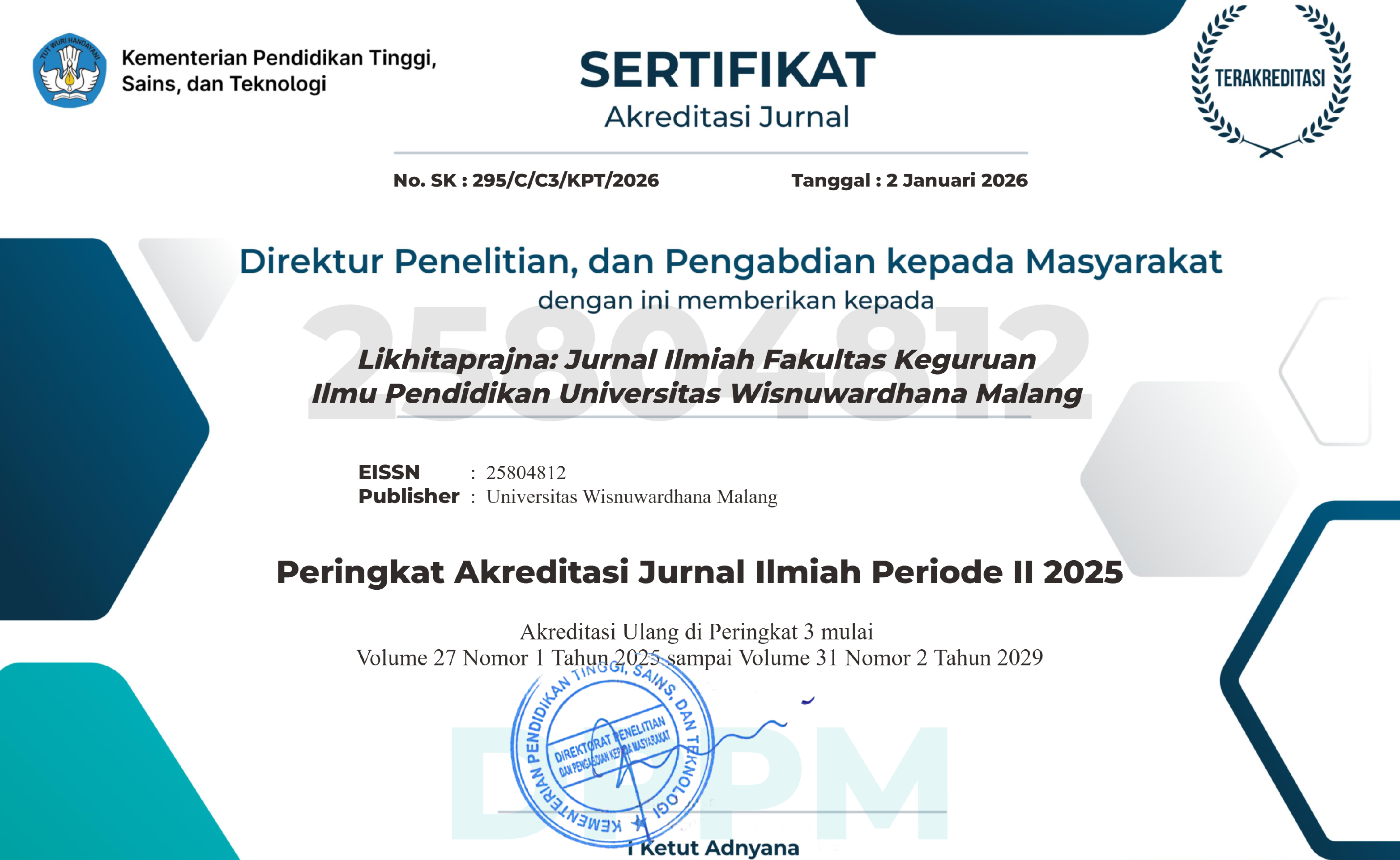Tindak Tutur Percakapan dengan Menggunakan Bahasa Jawa Di Lingkungan Sekolah
Abstract
This research is a qualitative approach research that aims to identify and describe speech acts in student conversations in speech acts when learning Javanese. While the background in this study is that Javanese is known as a complicated language because it has various variations according to the level called the speech level. The level of speech in Javanese is a system to show the degree of formality, and the degree of respect the speaker has with the speech partner he is talking to. The data of this study are transcripts and conversations of students' speech acts originating from the selected respondents. Data collection was carried out using observation techniques, listening techniques, recording techniques and note-taking techniques. Analysis of the data used in this study using heuristic methods. The analysis carried out in this research is to identify the types of speech acts, the forms of speech acts, speech acts and speech functions. Pragmatic analysis determines the intent of the speaker, whether expressed explicitly or implicitly, behind the speech. The results of the study concluded that in good learning in starting learning, conveying lessons and ending learning, several types of speech acts were found in Javanese subjects to improve the ability to speak words using Javanese. The speech acts include; (1) representative or assertive speech acts, (2) directive speech acts, (3) expressive speech acts, and (4) commissive speech acts. These four types of speech acts are always found when students speak words through the Javanese learning process and answer questions.
References
Chaer, Abdul & Leonie Agustina. 2010. Sosiolinguistik Perkenalan Awal. Jakarta: Rineka Cipta.
Gunarwan, Asim. 2007. “Kesantunan Negatif di Kalangan Dwibahasawan Indonesia-Jawa di Jakarta†dalam PELBA 7. Jakarta: Unika Atmajaya Press.
Djago Tarigan.2008: 15. Keterampilan Berbicara. Bandung: Angkasa.
Moleong, L. J. 2007. Metode penelitian kualitatif. Bandung: Remaja Rosdakarya.
Maidar, Arsjad dan Mukti US .2001. Berbicara adalah Suatu Keterampilan. Bandung: Remaja Rosdakarya.
Rahardi. 2005. Pragmatik: kesantunan imperatif bahasa Indonesia. Jakarta: Erlangga.
Rustono. 2009. Pokok-pokok Pragmatik. Semarang: IKIP Semarang Press.
Sumarsono. 2009. Sosiolinguistik. Sabda: Pustaka Belajar.
Suharsimi Arikunto.2010. Prosedur penelitian: Suatu Pendekatan Praktik. Jakarta: Rineka Cipta 2010.
Suyono. 2005. Pragmatik: Dasar-dasar dan Pengajaran. Malang: YA3.
Tarigan, Henry Guntur. 2009. Proses Belajar Mengajar Pragmatik. Bandung: Angkasa.
Tarigan, Henry Guntur 2009. Teori dasar Pragmatik. Bandung: Angkasa.
Wedhawati, dkk. 2006. Tata Bahasa Jawa Mutakhir. Yogyakarta: Kanisius.
Penulis yang menerbitkan karya ilmiahnya di Likhitaprajna setuju dengan ketentuan berikut: manuskrip yang diajukan dan dipublikasikan tetap menjadi hak publikasi penulis dengan karya yang dilisensikan secara bersamaan di bawah Lisensi Internasional Creative Commons Attribution-ShareAlike 4.0.
This work is licensed under a Creative Commons Attribution-ShareAlike 4.0 International License.



